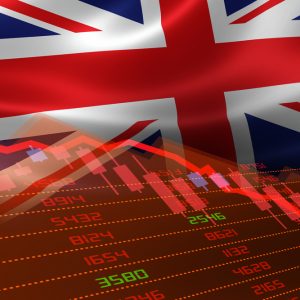
Gross domestic product (GDP) measures the value of goods and services produced in the UK. It estimates the size of, and growth in, the economy.
The latest figures for March reveal GDP fell by 0.1 per cent, following revised zero growth in February 2022.
According to the Office for National Statistics (ONS), services fell 0.2 per cent on the month which was the main downward contributor to the March decline.
There was a large decrease – 15.1 per cent – in the wholesale and retail trade and repair of motor vehicles.
Production also fell 0.2 per cent, though the ONS said this was partially offset by construction which grew 1.7 per cent.
Output in consumer-facing services fell 1.8 per cent in the month, following 0.5 per cent growth in February.
However, the ONS noted that monthly GDP is 1.2 per cent above its pre-pandemic level, with services 1.5 per cent higher and construction at 3.7 per cent above February 2020 figures.
But production still lags at 1.6 per cent below pre-Covid levels, while consumer-facing services are 6.8 per cent down.
Further, on a quarterly basis, January to March, GDP is estimated to have increased by 0.8 per cent, and 8.7 per cent compared with Q1 a year earlier.
‘The risk of recession has just risen’
The consensus was for zero per cent GDP growth in the month while on a quarterly basis, the figure floated by economists was one per cent so on both fronts, it fell below expectation.
Paul Dales, chief UK economist at consultancy Capital Economics, said the majority of the quarterly GDP growth came from January figures as it was flat in February and has now fallen for March “which leaves the economy with no momentum just when the surge in inflation is starting to become a big drag on households’ real incomes”.
Further, the reduced momentum comes even before the full hit of the cost-of-living crisis has been felt. As such, he added that the risk of recession has just risen, and with strong price pressures, the Bank of England is likely to raise interest rates further.
He said: “Suddenly, our forecasts that GDP will be flat in both Q2 and Q3 seem pretty optimistic. A contraction in GDP or a recession now feels a bit more likely.”
“The 1.8 per cent fall in consumer-facing services is worrying. Most of it was driven by a 1.4 per cent fall in retail sales and a 15.1 per cent drop in motor vehicle sales.
“Some of the weakness probably reflects the fading of the boost after the end of the Omicron wave. But some of it may be due to the cost-of-living crisis forcing households to rein in their spending on non-essential items.”
Laith Khalaf, head of investment analysis at AJ Bell, said: “The UK economy has now recovered to its pre-pandemic level, but momentum seems to be ebbing away, and recessionary forces are gathering.
“On top of higher energy prices and taxes, the UK economy now also has to deal with rising interest rates, which will serve to further dampen activity. Recession risk is therefore elevated, and while growth is still expected this year, 2023 looks like it will be more challenging economically. The markets are already looking forward to next year with some trepidation, which explains why we have seen significant falls in the pound and the FTSE 250 since the start of the year.”














